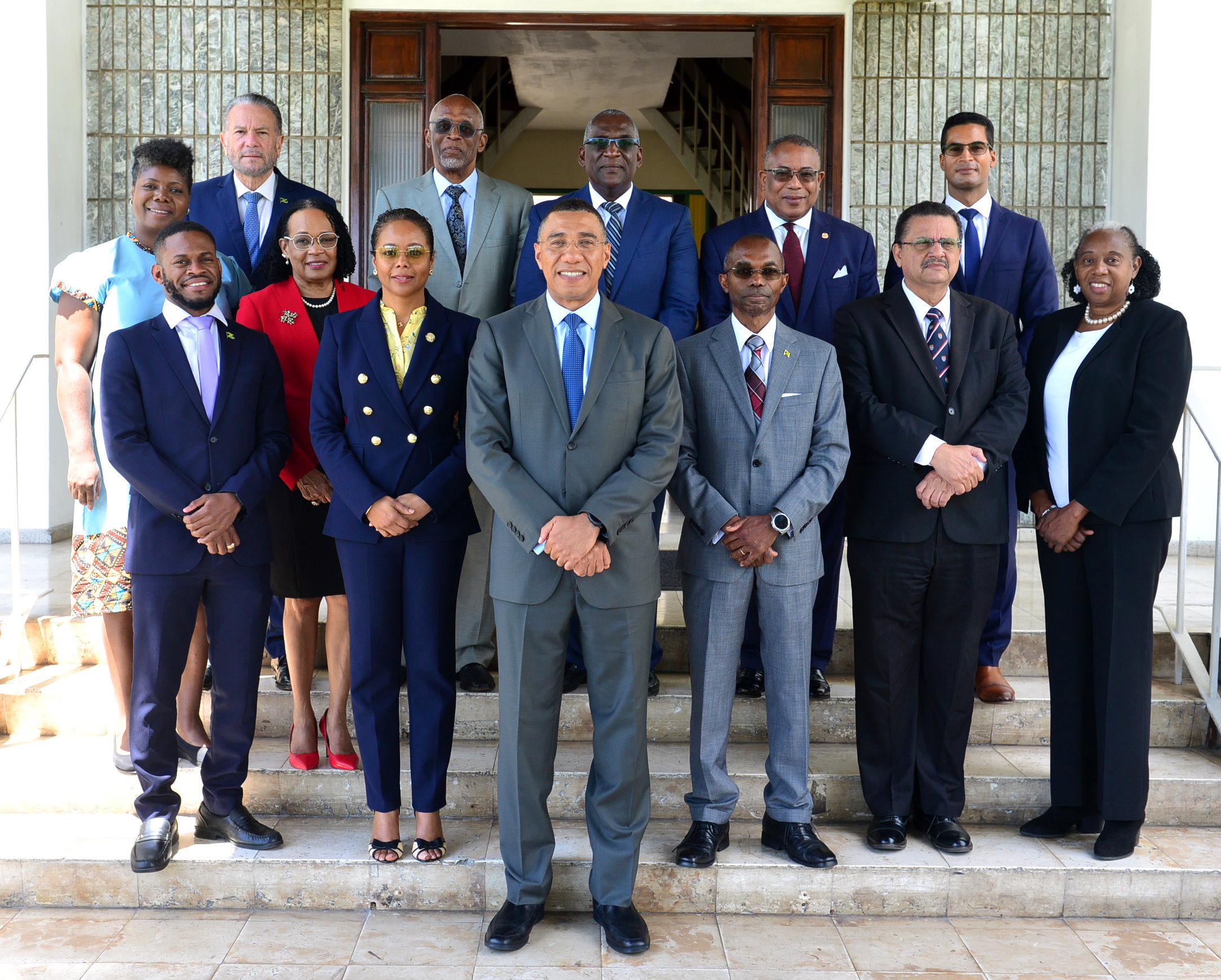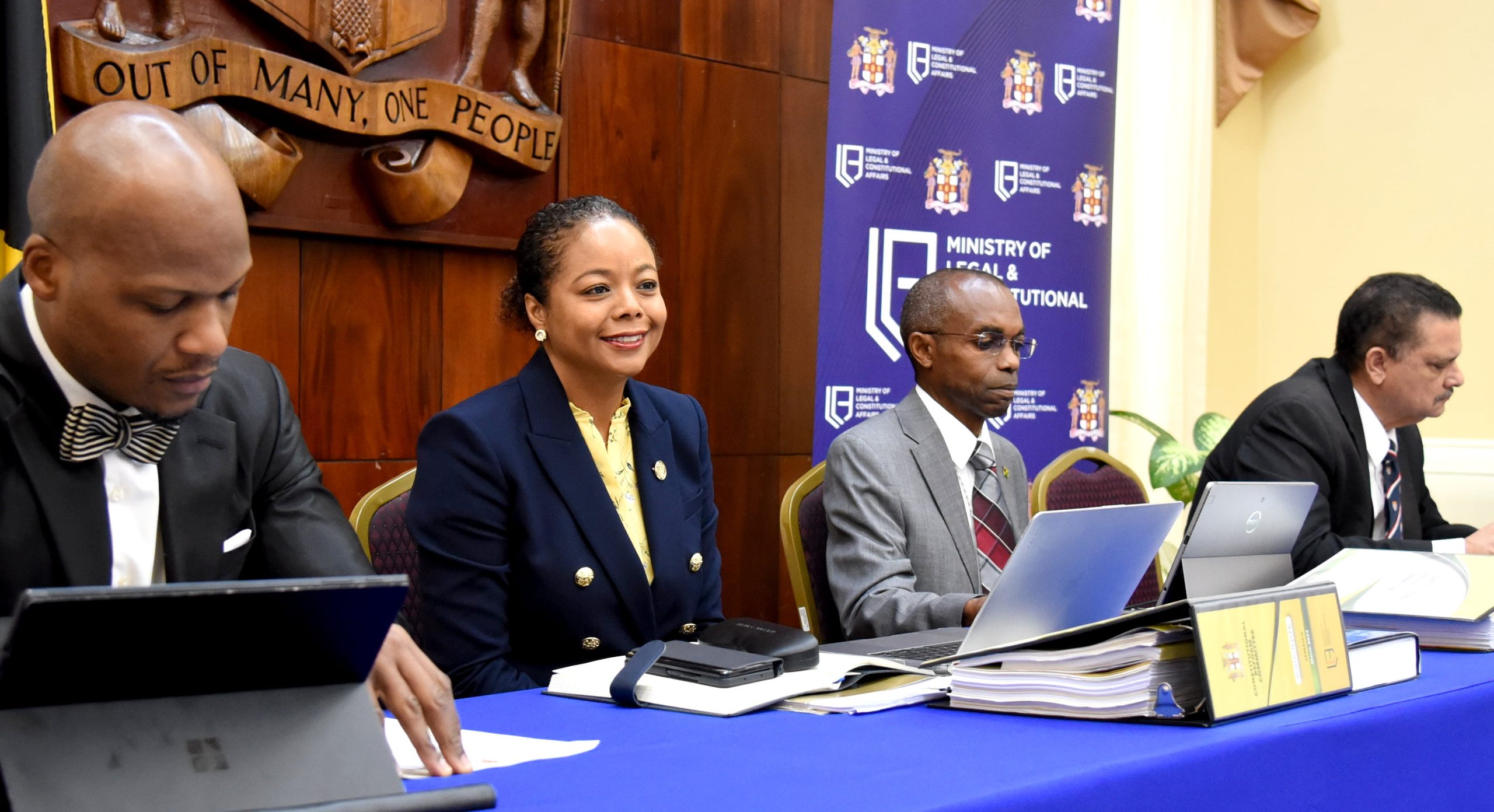
0
Committee Members
History
The continued symbolic presence of the British Crown in the constitutional makeup of the Jamaican state (and other Commonwealth Caribbean realm countries) has been repeatedly placed on reform agendas. In the 6 decades since the enactment of the Independence Constitution of Jamaica in 1962, there has been two noteworthy reform periods – the 1970s, and the 1990s up to 2015.
A lengthy process of constitutional reform began with the establishment of the Constitutional Reform Division in the Ministry of Justice in 1977. The research and technical support of the Division proved invaluable to a Joint Select Committee on Constitutional and Electoral Reform (JSCCER) that was appointed in 1991. The mandate of the JSCCER was to review the Independence Constitution of Jamaica and make recommendations for its reform. Following on the recommendation of the JSCCER that a new Constitution should be framed, the Parliament established a Constitutional Commission (“the Commission”) charged with the responsibility of soliciting the views of all Jamaicans and providing a report on the outcome of its consultations.
The first and final Reports of the Commission were submitted in 1993 and 1994, respectively, and included an examination of Chapter III (Charter of Fundamental Rights and Freedoms). The Report of the JSCCER was tabled in the Parliament in 1995.
A Green Paper, tabled in the Parliament in May 2007, proposed that following the next General Elections, a Bill providing for a new Constitution should be brought to Parliament. It is important to point out that the Green Paper did not depart from the recommendations made by the JSCCER. In fact, it urged Parliamentarians to acquaint themselves with the Report with a view to advancing the implementation process. The following section of the Green Paper is instructive:
“…the Report presented in 1995 and subsequent deliberations have indicated a wide area of agreement that the assumptions that underlie the present Constitution no longer reflect the prevailing sentiments either in the political parties or the nation.”
Despite the flurry of rhetoric and reform efforts, the fundamental institutional structures have largely remained unchanged. As a signal of his Administration’s seriousness about constitutional reform, The Most Honourable Andrew Holness, ON, PC, MP, Prime Minister, established the Ministry of Legal and Constitutional Affairs on January 10, 2022 to take charge of and give focused attention to the Government of Jamaica’s (GOJ) legislative agenda and its legal and constitutional reform aspirations, and specifically, to spearhead the most meaningful and comprehensive post-Independence constitutional reform work to be undertaken in Jamaica. Building on the work of the JSCCER and the Commission, the goal, in this regard, is to ultimately produce a new Constitution of Jamaica, enacted by the Parliament of Jamaica, establish the Republic of Jamaica as a parliamentary republic to replace the Constitutional Monarchy and affirm Jamaica’s self-determination and cultural heritage.
Although much work has been done by the JSCCER and the Commission, some important substantive and procedural issues remain unresolved. For example, moving forward, should we continue with the process of a referendum? Embarking on yet another constitutional reform exercise at this time is therefore to be seen as taking the step required for implementation of the agreed recommendations, while working to build consensus in related areas. However, a review of the recommendations is necessary, having regard to the passage of time between 1995 when they were made and now. Furthermore, some amendments have been made to the Constitution over the years, with the most significant being the replacement of Chapter III with the provisions of the Charter of Fundamental Rights and Freedoms in 2011.
Against this backdrop, a high-level Constitutional Reform Committee (CRC) has been established to, inter alia, perform an advisory and oversight role, with respect to the reform work, including the transition from a Constitutional Monarchy to a Republic.
Constitutional Reform Committee
The purpose of the CRC is to assist in providing expert guidance and oversight to the Government and People of Jamaica during the constitutional reform process, to inter alia, implement the recommendations of the JSCCER on which consensus remains, while helping to build consensus where it has eroded or is non-existent on other related matters. In particular, the CRC is required to:
01
Assess
how the passage of time has impacted the recommendations of the JSCCER contained in its Final Report (1995) which were submitted to and approved by the Parliament; and
advise
what fresh perspectives ought to be considered in light of any new national, regional or international development between then and now, as well as,
recommend
any necessary modification to update the recommendations for implementation.
02
Evaluate
the said recommendations of the JSCCER on the establishment of the office of President; and
advise
on the nature of such presidency, the qualifications and tenure of the president, and the legislative, executive, or ceremonial powers to be exercised by the President.
03
Assist in co-ordinating
the required parliamentary cross-aisle and nationwide consultation and collaboration during the various phases of the reform work; and in particular,
help to educate
the electorate on their role in the referendum process, in order to successfully transition from a Constitutional Monarchy to a Republic and to provide for related matters.
04
Generally agree on and guide
the sequence of steps to be taken to implement the said recommendations of the JSCCER and other recommendations for implementation to achieve the overall reform goal.
The CRC is required to help guide the constitutional reform process throughout all phases of the work (including during the referendum process), culminating in the crafting of a modern and new Constitution which reflects an appreciation and understanding of our cultural heritage, governance challenges and development aspirations, and which embodies the will of the People of Jamaica.
The work will be executed in three (3) phases:
Phase 1: Repatriation of the Constitution of Jamaica, abolition of the Constitutional Monarchy, establishment of the Republic of Jamaica, and all matters within the deeply entrenched provisions of the Constitution for which a referendum is required to amend.
Phase 2: Review other ordinarily entrenched provisions of the Constitution for which amendments are desired and required, including the wordings and provisions on the Charter of Fundamental Rights and Freedoms set out at Chapter III.
Phase 3: Full assessment of the nation state’s legal and constitutional infrastructure to facilitate putting together a new Constitution of Jamaica.
The CRC is expected to regulate its own proceedings to ensure that all aspects of the work are completed on time and within agreed budget.
In conducting its review and making its recommendations, the CRC is expected to, inter alia:
- Examine the provisions of the Order in Council, the Constitution of Jamaica and the Jamaica Independence Act and identify the provisions that may require amendment or revocation to give effect to the reform recommendations.
- Advise and make recommendations on the shift from a Constitutional Monarchy to a Republic, including the manner of selection of the Head of State, the powers to be exercised by the Head of State, and the power dynamics within Jamaica’s governance structure.
- Comparatively examine the processes adopted by other Constitutional Monarchies that have transitioned to a Republic (such as Trinidad and Tobago, Kenya, Mauritius, and Barbados), with consideration being given to any difference in the Constitution of Jamaica.
- As for Phase 2 – Conduct an in-depth review of the provisions of Chapter III of the Constitution (Charter of Fundamental Rights and Freedoms) to clarify the legislative intention and make recommendations for reform of any of its provisions, where necessary or advisable.
- Consult with constitutional law practitioners and as wide a cross-section of the public from whom the Committee deems it useful to obtain views on the proposals for reform and the proposed process for transition from a Constitutional Monarchy to a Republic.
Secretariat support to the CRC will be provided by the Ministry of Legal and Constitutional Affairs, constituted in accordance with the prior approval of the Cabinet. The Secretariat will act as a resource for the CRC, offering technical and administrative support.

